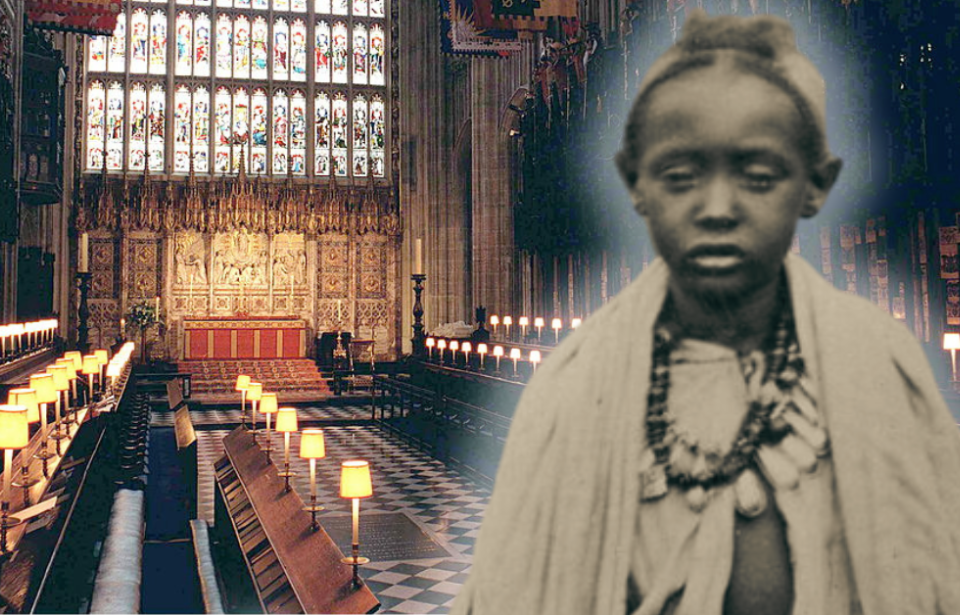While Buckingham Palace has said it won’t return the remains of Ethiopian Prince Alemayehu, who was buried at Windsor Castle in the 19th century, it has since approved the repatriation of a lock of hair and a handful of artifacts. The ceremony took place on September 21, 2023, and has led to increased calls for the prince’s body to be returned, despite the palace insiting it’s impossible to do so.
Abyssinia Expedition
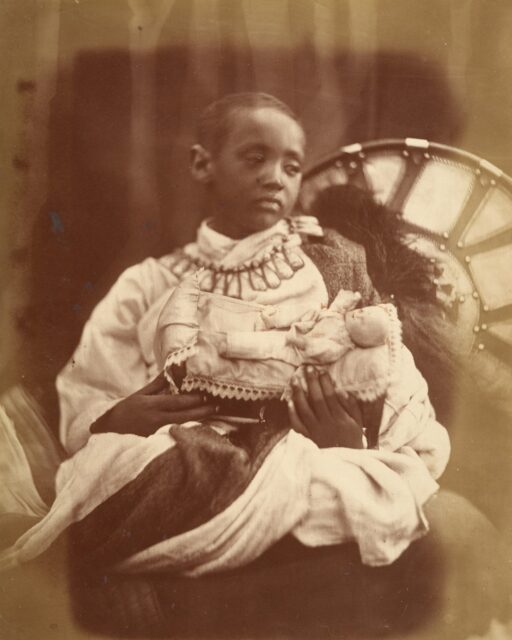
Emperor Tewodros II, Prince Alemayehu’s father, ruled Abyssinia – part of modern Ethiopia – beginning in 1855. Seven years later, he asked the British government for an alliance that would give him the weapons and tacticians he needed for his wars against neighboring territories. They didn’t answer.
Angered by the lack of a response, Tewodros took European hostages, including British Consul Capt. Charles Cameron. There was a public outcry in Britain and, after negotiations failed, they sent an extensive military force to rescue the hostages.
The fighting ended once the hostages were released and word spread that Tewodros had ended his own, rather than be captured. The British then took his son, Alemayehu, and wife, Empress Tiruwork Wube. They also looted so many royal treasures that 15 elephants and almost 200 mules were needed to carry everything back to Britain.
Prince Alemayehu in Britain
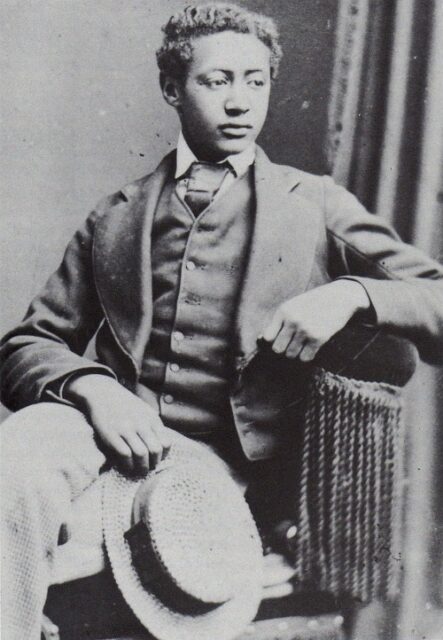
During the journey to Britain, Empress Tiruwork Wube died. Upon his arrival in June 1868, Prince Alemayehu’s status as an orphan caught the attention of Queen Victoria. Soon after, she met him at her holiday home on the Isle of Wight. She opted to support him financially and placed him under the care of Capt. Tristram Charles Sawyer Speedy, who’d accompanied him from Ethiopia.
Speedy took Alemayehu traveling around the world, including to India. He soon decided, however, that it was time for the prince to receive a formal education. After it was learned Alemayehu didn’t enjoy his first placement, he was sent to the Royal Military College, Sandhurst. Due to the amount of bullying he received, it was determined he would be tutored at a private home in Leeds.
Alemayehu reportedly wished to return home – but never did. He became ill with what’s believed to have been pneumonia or pleurisy and, in 1879, died at the age of 18. His death saddened Queen Victoria, who was so upset she arranged for him to be buried in the catacombs of St George’s Chapel, at Windsor Castle, which also holds members of the Royal Family.
The prince’s vault has a plaque reading, “When I was a stranger, ye took me in.”
Demands for the return of Prince Alemayehu’s remains
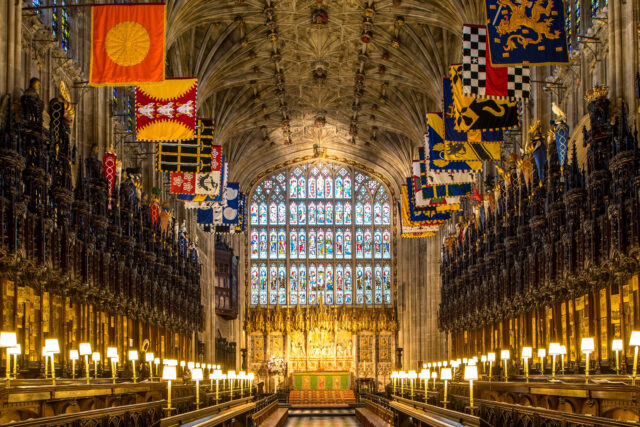
Calls have been made for some time for the Royal Family to return Prince Alemayehu’s remains to Ethiopia. In 2007, then-President Girma Wolde-Giorgis sent a formal request to Queen Elizabeth II for him to be returned, but was denied. Again, another request was recently made. However, the answer remains the same.
In a statement from Buckingham Palace released to the BBC, a spokesperson said that the removal of Alemayehu’s remains from the catacombs of St George’s Chapel would likely affect others buried there. The statement also indicated that the Royal Family was sensitive to the want and need to honor Alemayehu’s memory, but that they had “the responsibility to preserve the dignity of the departed.”
Buckingham Palace added that requests had been granted for Ethiopian officials to visit. However, this hasn’t been enough for descendants of Alemayehu’s family. Fasil Minas told the BBC, “We want his remains back as a family and as Ethiopians because that is not the country he was born in.”
Abebech Kasa, another descendant, also told the BBC that they want Alemayehu’s remains returned because they don’t belong in a foreign country. She then added, “When I think of him, I cry. If they agree to return his remains, I would think of it as if he came home alive.”
While some have taken the hardline that this is Britain and the Royal Family not coming to terms with their imperial past, others recognize the possible effects removing Alemayehu’s remains could have within the catacombs of St George’s Chapel. Either way, he will remain at Windsor Castle for the foreseeable future.
Returning a lock of hair belonging to Prince Alemayehu
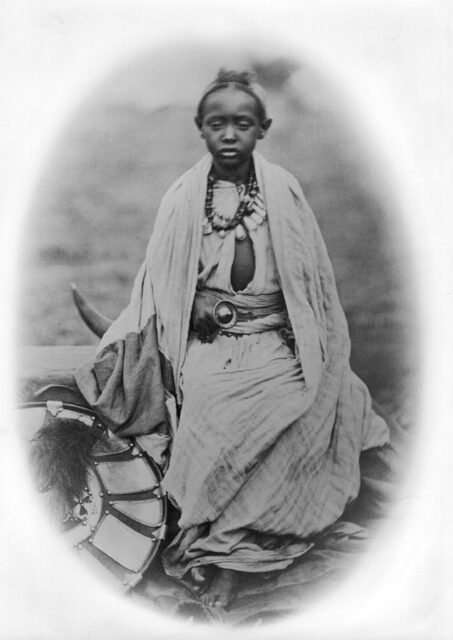
After calls to return Prince Alemayehu’s body to Ethiopia, the British, instead, opted to return a lock of hair. It happened at a private ceremony in London on September 21, 2023, with Teferi Melesse, Ethiopia’s ambassador to the United Kingdom, taking posession of the hair, along with several artifacts that had been looted from Emperor Tewodros II’s fortress back in 1868.
Among the artifacts that were returned were a shield and three silver cups. That being said, hundreds were looted from the fortress and have yet to be repatriated.
Fasil Minas hopes the return of the lock of hair will one day lead to the prince’s body being returned to Ethiopia. This sentiment was echoed by Melesse, who said Ethiopia’s government will continue to press the UK to return more artifacts that were looted from Tewodros II’s fortress.
More from us: Has the True Identity of Jack the Ripper Finally Been Discovered?
“The restitution of Ethiopian artefacts looted by the 1868 British expedition to Magdala is important for restorative justice and an excellent way to build better relations and collaborations between British and Ethiopian institutions,” Alula Pankhurst, a member of Ethiopia’s Heritages Restitution National Committee, told the BBC.
